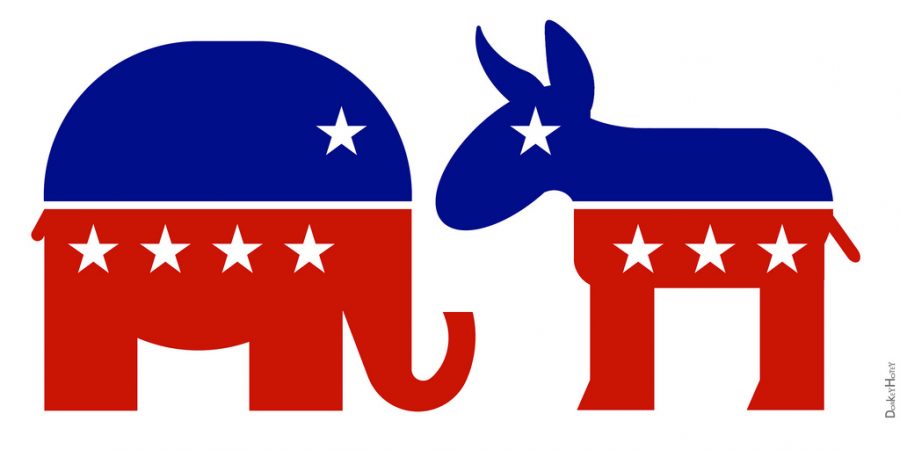A dangerous dichotomy
Isaac Young ’21 explores how the two party system negatively impacts American politics
When it comes time for Americans to vote, we always have an important, yet oversimplified decision to make: Democrat or Republican. If you chisel all American politics down to their roots, everything is a question of choosing between these two parties. The idea that two options can cover the thoughts and opinions of the American people is completely asinine. Our countrymen are being forced to widely agree with the Democratic or Republican party or waste their vote on third party options that receive little to no support.
It is important to note that the two party system was not the intended plan of our founding fathers. The man credited with establishing the United States, George Washington, even warned the people that political parties were a great threat to democracy. The two party system traces its roots back to a 1796 when John Adams and Thomas Jefferson, a Federalist and a Democratic-Republican respectively, dominated the election for president. Backing from the American people went largely to these two candidates and their parties, starting the dichotomy we see today. Overtime parties died out, shifted, and morphed into the contemporary partisan system between Democrats and Republicans.
Regardless of the history behind the process, it is clear that the two party system is not working for all Americans. According to PBS, only 58 percent of eligible voters cast a ballot for the presidential race in 2016. What’s even more shocking is that this number isn’t significantly lower than other years in recent history. In 2012, an even lower 57.5% voted in the presidential race. This raises a clear question: What about the over 40% of people who didn’t vote? In order to increase the voter turnout we need to have more candidates who can represent the millions of people who don’t align with the two options we are given.
While third parties currently exist, they don’t have the same legitimacy as the Republican and Democratic parties. Often, people refer to voting third party as “throwing your vote away”, and the sad truth is that they’re right. In Iowa’s Second Congressional District, which encompasses the Iowa City area, third party candidates procured a total 2.6 percent of the vote in 2018. The largest alternative option, the Libertarian Party, currently has only four representatives in state governments and none whatsoever on the national scene. The stigma against voting third party and the monetary advantage the core parties have makes voting third party a waste. The lack of representation for third parties is making it impossible for Washington, D.C. and localized governments from accurately representing the people.
Expecting 326 million people to fall within the limits of two ideologies is a ridiculous expectation. In many areas, Republicans and Democrats represent the right and left of the political spectrum. We need parties who can represent everything in between these two and further beyond to each side. Creating an environment where people are forced to choose between two schools of thought artificially restricts the beliefs of the public. How can we have true democracy when we are forced to choose between two candidates? The concept of having two organizations who are completely in charge of the political environment defies the concept of democracy. People should be free and able to vote the way they really think and not for a party who represents a percentage of their views.
If we allow additional parties to become a larger part of the political system we may one day see a near 100% voter turnout. The two party system is standing in the way of democracy in America and it is imperative that we fix it. The citizens of our nation need to lose their fear of voting third party in order to obtain true democracy. Pushing legislation that bars two political parties from dominating the government is a daunting, yet necessary step. Rebuilding the political atmosphere all over America will take a long time, but the sooner we start the sooner we will truly live in a democracy that can represent everyone equally.
